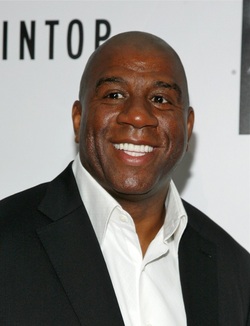 One of my friends posted a very interesting status update on Facebook: "Why is it that some people in Malawi feel like it’s a crime to have a good life or have good things? If one wants to spend their money buying expensive shoes, so be it [it’s their money], [if they want to own a] Range Rover although they stay in a rented house [it’s their business], and if one wants to build a mansion so be it, if it makes you happy! Don’t plan other people’s lives for them! I just saw a certain post and it made me sad! Priorities differ good people!" [Text in square brackets has been translated to English (from Chichewa) for accessibility] Although I agree with the general sentiment that people should spend in any way they want to, I personally think some spending decisions are foolish and very myopic. Less than 60 seconds later, I happened upon this post: Lack of Saving Culture – Biggest Challenge Facing Malawian Entrepreneurs: (says Hitesh Anadkat of First Merchant Bank, Malawi) “In my view the biggest challenge Entrepreneurship faces in Malawi is our savings culture. Actually it is the ‘lack of savings’ culture. I would argue that if we look at the whole world, in 95% of the cases, the capital to start entrepreneurial businesses came from individual or family savings. If you have zero money, it is unlikely a bank will lend you 100% of your requirements. In almost every case you need to show seed capital. This saving culture has to apply to families who want to establish themselves. In my culture [ethnic Indian], most of us do not spend anywhere near what we earn. After basic needs are provided for, the rest goes to saving or businesses for future generations.  When families are starting out they are very careful with their money. Typically, you will have cases where parents and three or four brothers are living under one roof to save money. This is certainly how my father grew up in India. Even though you have money, you do not spend it on new cars, or eating out, or expensive holidays. The family has to realize that if they want the family to become long term players in the business world, or want to educate their children, or feel secure in life, they have to save. They have to sacrifice short term pleasure for greater long term gains. It is because I, my father and his father before me saved, that we had the money to start FMB (First Merchant Bank) and other businesses. We only pay a small percent of our income as dividends and the rest is saved in the company. But even out of the dividends, we save and invest most of this money. My father bought his first Mercedes when he was 56 years old. This was second hand. At this time, he could have afforded 10 new ones. He bought his house when he was 60. He could have afforded this a long time ago, but he decided he needed money for working capital, as he did not want to spend money on interest from bank borrowings.” Comment from the person that shared the post: I read this priceless advice over and over again. It is the kind of truth most Malawians are not ready to embrace, and that is why many Malawian families don’t have a foot in the business arena. We would rather build a mansion with five bedrooms and six toilets… and a Range Rover, a Merc and a Twincab parked outside. We lack the basic ingredient to business success – delayed gratification.  I personally was in total agreement with Hitesh because all around me I see people making what I would call shortermistic decisions. I have one Zimbabwean friend who managed to get into investment banking and with his first bonus bought a brand spanking new Mercedes Benz (while he lived in a rented flat). Six months later he was like, “Sha, Heather, I totally regret getting that car. If I had invested that money on the Zim stock exchange I would have ten times more money right now!” As they say, hindsight is 20/20. In his case, at least he even had the wealth to buy the car with his own money. I know many others that lease expensive cars when they don’t own the place where the sleep. Now, I would definitely say posturing and looking good is a culture amongst Africans. We not only want to keep up with the Joneses we want to one-up them every chance we get. Black people in general are heavily influence by hip-hop music, videos and culture where wealth and living it up is glamorized in a way that it is not in other types of music. Shows like “Cribs” and “Pimp My Ride” flaunt the good life and encourage us to spend. I’m not even sure if I can exclude myself from the myopic crowd. I too bought a brand new Merc at 27. Yes, I did have a portfolio of 4 houses and some land but I could still have invested that money. I justified the purchase to myself: I thought I deserved a treat because I had spent five years being so abstemious and a recent personal event made me realize just how short life is but is there really any justification for such indulgence at 27. If something were to happen to me my savings would have blessed my mum and siblings – I wasn’t married at the time. Anyhow, whilst I thought these things I also realized that on the flip side, Africans are hands-down the most laissez-faire, happy-go-lucky people I know. Given that, is it better that we accept lower levels of wealth as a group for more happiness? Can we have both? I don’t like to make sweeping statements about a population but having grown up in Malawi and lived my adult life in the West I can agree with Hitesh the Chairman of First Merchant Bank that there is a greater lack of savings culture in Malawi and Africa in general compared to the West and especially compared to Asia – notably Japan. Of course, I acknowledge that swathes of people in the West also live in debt; nonetheless there is a very strong culture around saving to buy a home and frequent media discussions around pensions and saving for old age – Africans especially in a rural setting talk about having children to look after them in old age... What do you think? Will the lack of a savings culture keep African lagging behind the world?  Want to Build a 6-Figure Beauty Business from the comfort of your sofa? Then my course is designed for YOU! "Beauty" includes a WIDE range of products from the not so obvious non-perishable foods and crafts to the more obvious hair, makeup, fashion, health & fitness.
2 Comments
I think what ppl do with their money is their business, however; I just want our ppl to be more self sufficient.
Reply
Heather K-W
3/4/2015 02:06:15 pm
Indeed, whilst what people do with their money is their business we can certainly judge what is sensible from what is not...like $600 on shoes? Who needs that?
Reply
Leave a Reply. |
Heather on WealthI enjoy helping people think through their personal finances and blog about that here. Join my personal finance community at The Money Spot™. Categories
All
Archives
September 2023
|
Heather Katsonga-Woodward, a massive personal finance fanatic.
** All views expressed are my own and not those of any employer, past or present. ** Please get professional advice before re-arranging your personal finances.
 RSS Feed
RSS Feed


